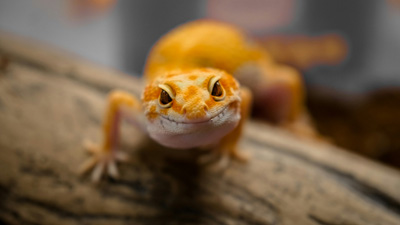Exploring Ferret Nutrition: What Can Ferrets Eat?

Photo by Pharma Hemp Complex on Unsplash
Ferrets, with their boundless energy and playful nature, make delightful companions for many pet owners. As obligate carnivores, ferrets have unique dietary requirements that are essential for their health and well-being. Providing a balanced and nutritious diet is crucial to ensuring that ferrets thrive and live long, happy lives.
In this comprehensive guide, we'll explore the foods that ferrets can eat, offering insights into their nutritional needs and suitable dietary options.
Here's a condensed list of foods that are safe for ferrets to eat:
- 1. Commercial ferret food
- 2. Raw meat (chicken, turkey, beef, lamb, rabbit)
- 3. Cooked meat (chicken, turkey, beef)
- 4. High-quality cat food
- 5. Raw eggs (in moderation)
- 6. Ferret-specific treats
- 7. Fruits (bananas, apples, berries, melons)
- 8. Vegetables (carrots, peas, bell peppers)
- 9. Fresh, clean water
1. Commercial Ferret Food
One of the most convenient and practical options for feeding ferrets is commercial ferret food. These specially formulated diets are designed to meet the unique nutritional needs of ferrets, providing a balanced mix of protein, fat, vitamins, and minerals. Look for high-quality ferret foods that list meat, poultry, or fish as the primary ingredients, as these are essential sources of protein for ferrets. Additionally, choose products that are free from excessive carbohydrates, fillers, or artificial additives, as these may not provide adequate nutrition for your ferret.
2. Raw Meat
Raw meat is a natural and nutritious option for feeding ferrets, as it closely mimics their diet in the wild. Offer a variety of raw meats such as chicken, turkey, beef, lamb, and rabbit to provide your ferret with a diverse range of nutrients. Organ meats such as liver and heart are particularly beneficial for ferrets, as they are rich in essential vitamins and minerals. Be sure to feed only fresh, high-quality meats and avoid any that are spoiled or contaminated to prevent digestive issues or foodborne illnesses.
3. Cooked Meat
Cooked meat can also be fed to ferrets as part of their diet, although it may not be as nutritionally dense as raw meat. Cooked chicken, turkey, beef, and other meats can be offered to ferrets in small amounts as a tasty treat or supplement to their regular diet. However, be mindful of seasonings, sauces, and additives that may be harmful to ferrets, and avoid feeding them any cooked bones, as these can pose a choking hazard or cause intestinal blockages.
4. High-Quality Cat Food
While commercial ferret food is specifically formulated for ferrets, high-quality cat food can also be a suitable option for feeding ferrets. Look for cat foods that are high in protein and fat and free from excessive carbohydrates and fillers. Choose products that list meat, poultry, or fish as the primary ingredients and avoid those that contain grains, corn, or soy, as these are not suitable for ferrets. Additionally, opt for cat foods that are designed for all life stages or kittens, as they tend to have higher protein and fat content.
5. Raw Eggs
Raw eggs are a nutritious source of protein and fat for ferrets and can be fed to them in moderation. Offer raw eggs as an occasional treat or mix them with other foods to add variety to your ferret's diet. Be sure to feed only fresh, clean eggs and avoid any that are cracked or contaminated. Some ferrets may prefer eggs scrambled or cooked, but raw eggs are generally safe for ferrets to consume.
6. Ferret-Specific Treats
Ferret-specific treats can be a fun and tasty addition to your ferret's diet, but it's essential to choose treats that are nutritionally appropriate and free from harmful ingredients. Look for treats that are made from high-quality protein sources such as meat, poultry, or fish and avoid those that contain excessive sugars, carbohydrates, or artificial additives. Offer treats in moderation to prevent overfeeding and maintain a healthy weight for your ferret.
7. Fruits and Vegetables
While ferrets are carnivores and have limited ability to digest plant matter, some fruits and vegetables can be fed to them in small amounts as occasional treats. Offer fruits such as bananas, apples, berries, and melons, as well as vegetables like carrots, peas, and bell peppers, to add variety to your ferret's diet. Be sure to chop fruits and vegetables into small, bite-sized pieces to prevent choking, and introduce new foods gradually to monitor your ferret's response.
8. Water
Last but not least, fresh, clean water should be available to your ferret at all times to ensure proper hydration. Provide a shallow dish of water that is easily accessible to your ferret, and change it regularly to keep it clean and fresh. Monitor your ferret's water intake and encourage them to drink if necessary, especially during hot weather or if they are eating dry foods.
Conclusion
Feeding a ferret a balanced and nutritious diet is essential for maintaining their health and well-being. Offer a variety of high-quality commercial ferret foods, raw and cooked meats, high-quality cat foods, raw eggs, ferret-specific treats, and occasional fruits and vegetables to meet your ferret's nutritional needs and keep them happy and healthy. Monitor your ferret's weight, appetite, and overall condition, and consult with a veterinarian if you have any concerns about their diet or health. With proper care and nutrition, your ferret can enjoy a long and fulfilling life as a cherished companion.
You May Also Like
 Other PetsWhy Are Ferrets Illegal in the US?
Other PetsWhy Are Ferrets Illegal in the US? Other PetsDo Ferrets Get Along with Cats?
Other PetsDo Ferrets Get Along with Cats? Other Pets5 Fascinating Facts About Ferrets, Did You Know?
Other Pets5 Fascinating Facts About Ferrets, Did You Know? Help & AdviceExploring 6 of The Friendliest Small Pets
Help & AdviceExploring 6 of The Friendliest Small Pets Help & AdviceTop 10 Exotic Pets Perfect for Apartment Living
Help & AdviceTop 10 Exotic Pets Perfect for Apartment Living Help & AdviceExploring 10 Easiest Exotic Pets to Take Care Of
Help & AdviceExploring 10 Easiest Exotic Pets to Take Care Of